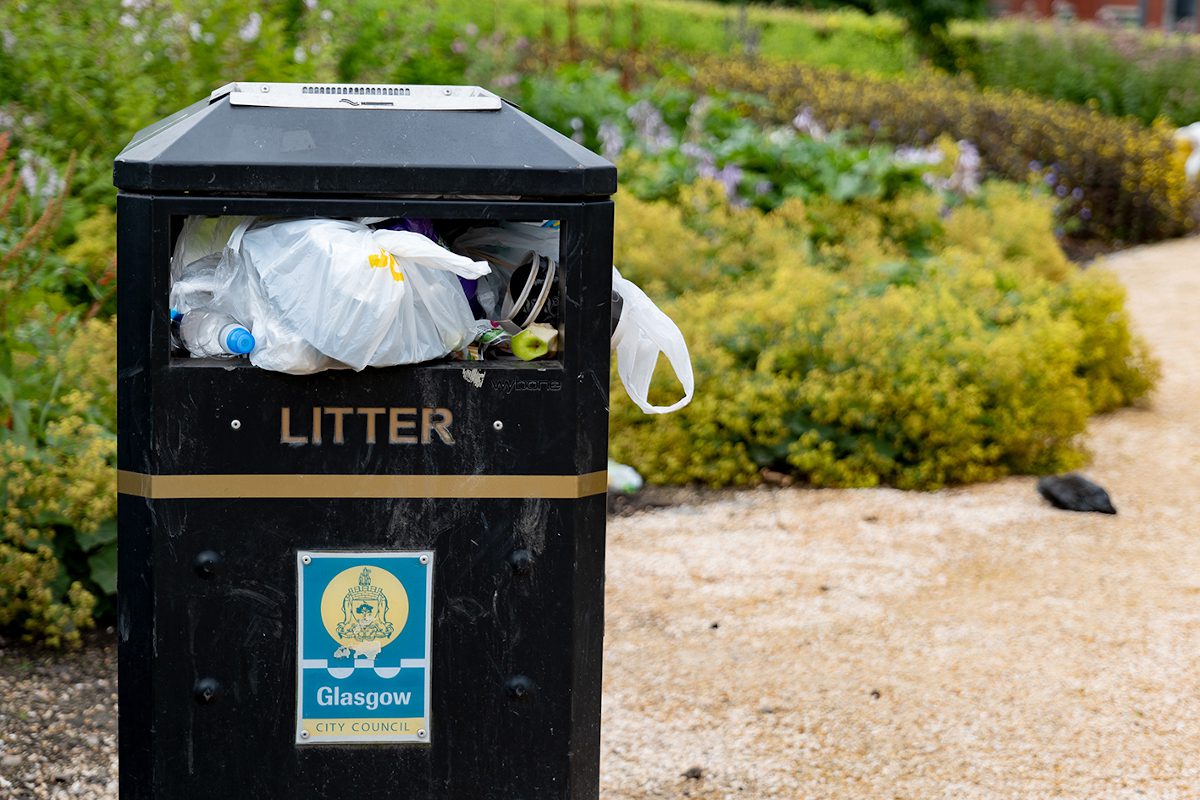
The carbon emissions associated with Scotland’s waste in 2018 dropped 11% on the previous year to reach the lowest level since official recording began, according to the Scottish Government-funded circular economy expert Zero Waste Scotland.
The publication, “The Carbon Footprint of Scotland’s Waste – Carbon Metric Report for 2017 and 2018”, tracks the impact of the country’s waste, from its creation to disposal, and data released today reveals 10.3 million tonnes of carbon dioxide equivalent (Mt CO eq) were produced in 2018. The figure stands 30% below 2011’s baseline level, when Carbon Metric reporting began.
The reduction was welcomed by Zero Waste Scotland’s chief executive Iain Gulland, who added that further carbon savings can be still achieved by accelerating the transition to a circular economy and eliminating the generation of waste in the first place. Waste prevention will not only help us to slash our carbon impacts but also reach the 15% national waste reduction target by 2025.
2017 and 2018 were also the first years where more food waste, one of the most significant emitters of carbon, was recycled as opposed to being sent to landfill or incineration. Despite making up only 5% of Scotland’s waste by weight in 2018, food waste was still responsible for one quarter of Scotland’s total waste carbon footprint.
Dr Ramy Salemdeeb, report co-author and environmental analyst at Zero Waste Scotland, said the country was “in a better place than ever before in terms of managing our waste.” He continued: “The carbon impact of what we waste has reduced by almost a third since we began monitoring. Understanding the whole-life carbon impacts of waste allows us to introduce measures that target carbon-intensive materials to achieve the highest carbon savings and consequently contribute to Scotland’s efforts to meet the 2045 net-zero emissions target.”
The most significant factors in lowering 2018’s carbon figure was in producing less waste in general and an increase in recycling. Areas where significant reductions were achieved include construction waste and food waste.
The report also notes the five most carbon intensive waste materials were responsible for one fifth of Scotland’s waste by weight in 2018, but accounted for 71% of the overall carbon impacts.
Around four fifths (80%) of Scotland’s carbon footprint comes from all the goods, materials and services which people in the country produce, use and often throw out after just one use. This is the single greatest cause of the climate crisis.
Zero Waste Scotland is the country’s circular economy expert, focusing on promoting products, services and systems that are designed to achieve maximum use and minimise waste. Instead of being designed to last for a short amount of time, products are reused, repaired, remanufactured or recycled.
There should be no waste in a truly circular economy, and the organisation is working to develop these practices across industries throughout the country.
Mr Gulland said: “We can do a lot more when it comes to recycling our waste. Every percentage increase can cut tens of thousands of tonnes off Scotland’s carbon footprint. Waste prevention has even greater environmental benefits. For instance, in the construction sector, which is the single largest contributor of waste in Scotland, reusing building materials from old sites to build new ones, can dramatically reduce the carbon impacts of our buildings. Meanwhile in the home, food waste and single-use packaging both have major carbon impacts.
“If we buy smarter and make greater use of what we already have, we will reduce the carbon we send into the atmosphere and our impact on the planet. Fully embracing the circular economy and doing things differently will allow us to live in a way that enjoys the best of a 21st century lifestyle whilst protecting our environment.”







